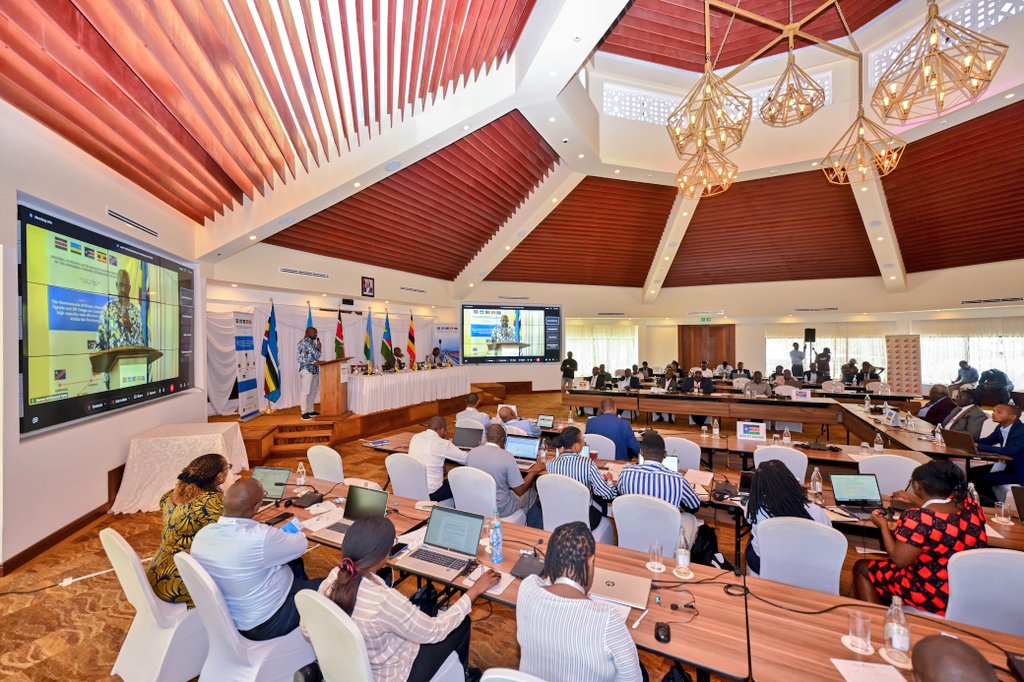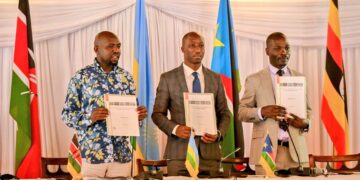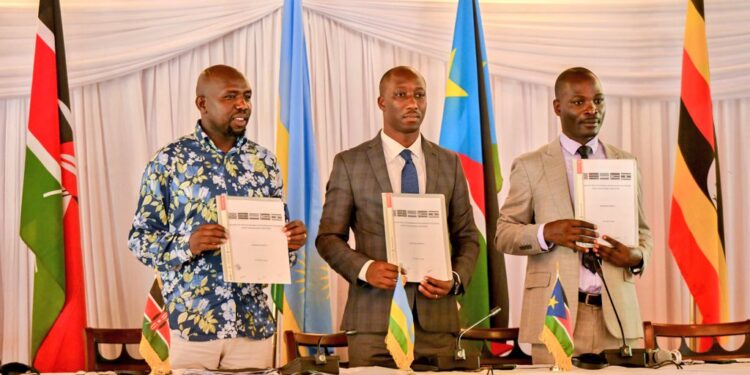The Northern Corridor Integration Projects (NCIP) partner states, comprising Kenya, Uganda, Rwanda, and the Democratic Republic of Congo, have agreed to jointly mobilize funds to fast-track the development of the Standard Gauge Railway (SGR) project.
The decision was made during a meeting of the Joint Ministerial Committee on SGR, held in Mombasa, Kenya on May 3, 2024.
The transport ministers reaffirmed their commitment to expediting the completion of the remaining SGR sections from Naivasha in Kenya to Uganda, Rwanda, South Sudan, and DRC. Specifically, Kenya has committed to resume the construction of the Naivasha-Kisumu-Malaba and Kisumu-Malaba SGR sections starting in July and September 2024, respectively.
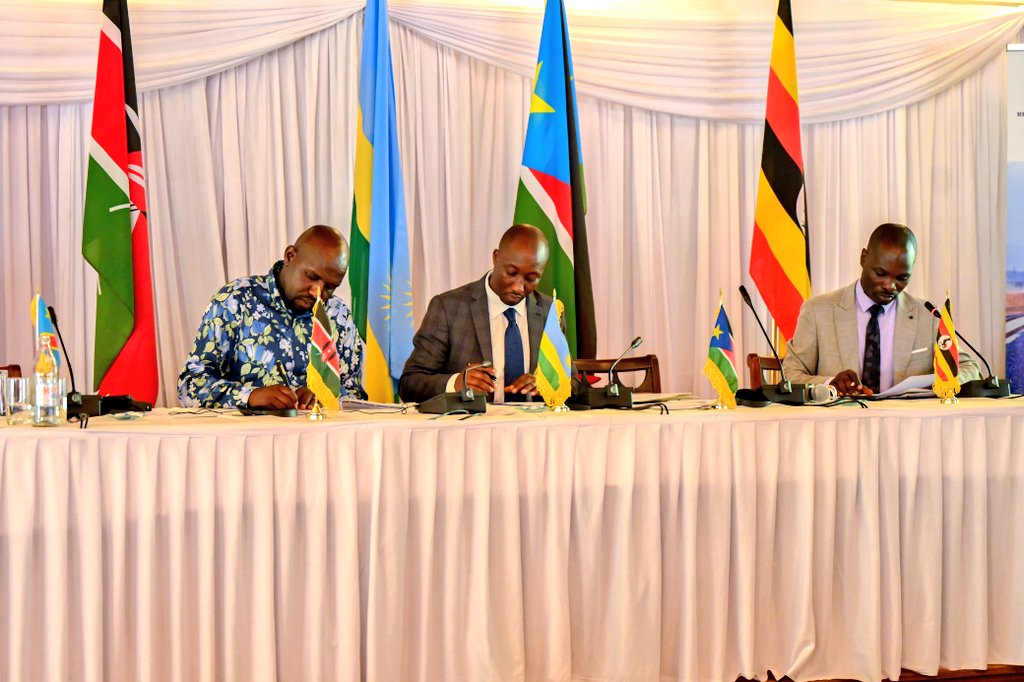
Uganda is also expected to start the construction of Malaba-Kampala in September, subject to the availability of resources, and is in the final stages of negotiations with the proposed contractor, Yapi Merkezi, with the contract expected to be signed by the end of May 2024.
Fred Byamukama, Uganda’s State Minister for Transport, representing Gen. Edward Katumba Wamala, Minister of Works and Transport of Uganda and Chairperson of the Joint Ministerial Committee on SGR, emphasized the ministers’ commitment to the project.
“We have agreed to source funds jointly because this railway line doesn’t stop in one country. Once we source funds jointly and also use the same contractors, work will move smoothly,” he said in an interview.
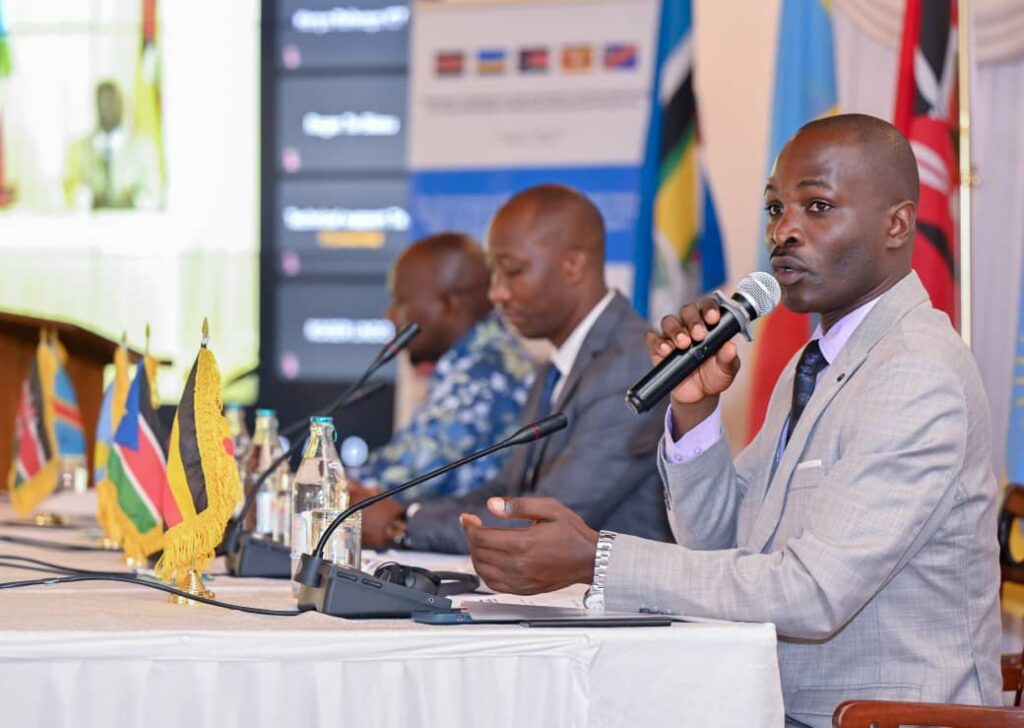
Adding, “We are committed to fast-tracking the development of the SGR project to enhance regional transport integration and promote economic growth. This project will have a transformative impact on our region’s economic development, and we are committed to ensuring its successful implementation.”
As the chair of the infrastructure cluster meeting of the NCIPs, Uganda played a key role in facilitating the ministers’ agreement.
Kipchumba Murkomen, Kenya’s Cabinet Secretary of Roads and Transport Ministry, said they are in discussion with the private sector and the EXIM Bank to shoulder part of the financing.
The remaining stretch from Naivasha-Kisumu-Malaba line is estimated to cost the country around $5.3 billion. “The dream of SGR is on. As Kenya, we will leverage on the private sector now, and I know that the project we have from Naivasha to Malaba, including the improvements around Kisumu Port, will cost the country around $5.3 billion,” said Kipchumba.
“We are in discussion with the private sector to see if we can structure an arrangement for them to take the large burden at very reasonable and concessional terms so that we can continue with the project.”
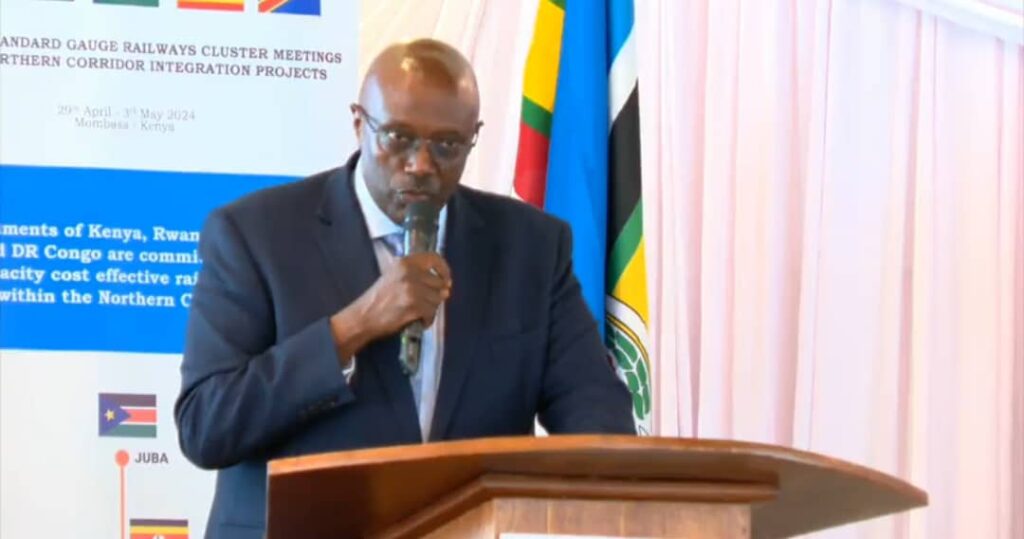
The ministers welcomed the commitments of partner states to commence construction of various SGR routes, including Naivasha-Kisumu-Malaba, Malaba-Kampala, Kampala-Bihanga-Kasese-Mpondwe leading into DRC, Bihanga-Mirama Hills leading into Rwanda, Tororo-Gulu-Nimule leading into South Sudan, and Gulu-Pakwach-Vurra leading into DRC, after securing financing for the Malaba-Kampala SGR section.
Jimmy Gasore, Rwanda’s Minister of Infrastructure, emphasized the need to keep SGR as a regional project, explaining that Kenya will not benefit from the full potential of the project given the heavy investment involved if the project is not extended all the way to Uganda, Rwanda, and other countries within the corridor.
“We have reiterated our need to coordinate and package this project as a regional project so that we develop in harmony. It will, for example, not help us to develop our section, that is Kigali-Mirama Hills, if the Naivasha to Malaba and Malaba-Kampala-Mirama Hills is not developed,” said Mr. Gasore.
The ministers noted progress made so far, including the completion of the Mombasa-Nairobi-Naivasha SGR section, which is fully operational, and the harmonization of technical specifications and standards for SGR by Kenya and Uganda.
According to Amb. Richard Kabonero, Coordinator of the NCIPs for Uganda, the SGR is a critical artery at the heart of the region’s efforts to reduce transport costs and make East Africa competitive.
“We are working hard towards the 15th Summit of the Heads of State to revive the momentum that we had in the past,” he added, noting that the SGR project is one of the most ambitious projects.
The European Union delegation in Uganda has been supporting the Uganda’s Ministry of Foreign Affairs under the NCIPs coordination efforts.
The ministers also agreed to establish a framework for cross-border maintenance of SGR assets and facilities, harmonize planning and development of inland water transport infrastructure, and fast-track the review of the Tripartite Agreement on water transport on Lake Victoria.
According to the joint communique, the Democratic Republic of Congo has committed to assent and ratify the existing SGR protocol and SGR Tripartite Agreement.
The Ugandan delegation also included Mr. Benon Kajuna, Director of Transport at the Ministry of Works, Amb. Paul Mukumbya, Consul General, Uganda Consulate in Mombasa, Mr. Evans Aryabaha, Charge D’Affaires, Uganda High Commission in Nairobi, and other senior government officials.
